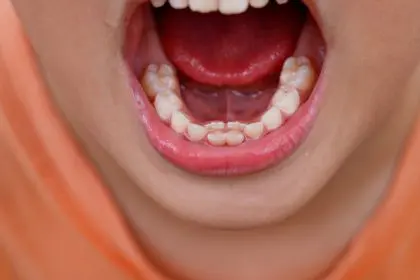Eating disorders are often associated with extreme weight loss, but what many people don’t realize is that they can also lead to significant weight gain. This paradox can be confusing and distressing for individuals struggling with these conditions. Understanding how eating disorders can cause weight gain is crucial for both sufferers and those supporting them. This article will explore the mechanisms behind this unexpected outcome, shedding light on the complex relationship between eating disorders and body weight.
The connection between eating disorders and weight gain
Eating disorders such as binge eating disorder (BED), bulimia nervosa and even anorexia nervosa can all contribute to weight gain in different ways. These conditions involve unhealthy patterns of eating and behavior that disrupt normal metabolism and body functions.
- Binge eating disorder (BED): Binge eating disorder is characterized by frequent episodes of consuming large quantities of food in a short period, often without control. Unlike bulimia nervosa, BED does not involve regular purging after overeating. This leads to a surplus of calories that the body stores as fat, resulting in weight gain. The emotional distress associated with BED can exacerbate the cycle of binging and weight gain, creating a difficult pattern to break.
- Bulimia nervosa: Bulimia nervosa involves cycles of binge eating followed by purging through vomiting, laxatives or excessive exercise. While purging might seem like it would prevent weight gain, it often doesn’t remove all the consumed calories. Moreover, the body can become more efficient at storing calories after repeated cycles of binging and purging, leading to weight gain over time. The metabolic fluctuations caused by these behaviors can further contribute to an increase in body weight.
- Anorexia nervosa: Anorexia nervosa is typically associated with severe weight loss due to extreme calorie restriction. However, individuals recovering from anorexia may experience significant weight gain. The body, having been deprived of nutrients for an extended period, may overcompensate when normal eating patterns are resumed. This is sometimes referred to as “rebound weight gain.” Additionally, the psychological stress and anxiety about food and body image can lead to periods of overeating or binging, further contributing to weight gain.
Emotional and psychological factors
The emotional and psychological aspects of eating disorders play a critical role in weight gain. Stress, depression and anxiety are common in individuals with eating disorders and can lead to emotional eating. Food becomes a coping mechanism, and individuals may turn to high-calorie, comfort foods to manage their emotions. This behavior can result in significant weight gain over time.
Emotional triggers and weight gain
Understanding the emotional triggers that lead to unhealthy eating behaviors is essential. For example, stress and anxiety can cause the body to release cortisol, a hormone that increases appetite and encourages fat storage, particularly around the abdomen. Emotional eating — driven by a need for comfort or a distraction from negative feelings — often involves consuming large quantities of calorie-dense foods, which can lead to rapid weight gain.
The role of metabolism
Metabolic changes are a significant factor in weight gain associated with eating disorders. The body’s metabolism can be profoundly affected by erratic eating patterns, leading to weight gain even when food intake might not seem excessive.
Metabolic slowdown
In individuals with anorexia, prolonged calorie restriction can slow down the metabolism as the body tries to conserve energy. When normal eating resumes, the slowed metabolism can cause the body to gain weight more quickly because it is not burning calories as efficiently as it once did. This metabolic slowdown can persist even after normal eating patterns are reestablished, contributing to long-term weight gain.
Insulin resistance
Binge eating and the consumption of large amounts of sugar and refined carbohydrates can lead to insulin resistance. This condition makes it harder for the body to regulate blood sugar levels, leading to increased fat storage and weight gain. Insulin resistance is a common problem in individuals with BED and bulimia, exacerbating weight issues.
Breaking the cycle
Addressing weight gain caused by eating disorders requires a multifaceted approach that includes medical, psychological and nutritional support. Treatment plans should be tailored to the individual’s specific needs and may involve therapy, medication and lifestyle changes.
Therapeutic interventions
Cognitive-behavioral therapy (CBT) is an effective treatment for many eating disorders and can help individuals change unhealthy thought patterns and behaviors related to food and body image. Other therapeutic approaches, such as dialectical behavior therapy (DBT) and family-based therapy, can also be beneficial.
Nutritional counseling
Working with a registered dietitian who specializes in eating disorders can help individuals develop healthy eating habits and understand how to nourish their bodies properly. Nutritional counseling can also address misconceptions about food and weight and help individuals achieve a balanced relationship with food.
Medical support
In some cases, medication may be necessary to treat underlying mental health conditions such as depression or anxiety, which can contribute to disordered eating behaviors. Medical monitoring is also essential to address any physical health issues resulting from an eating disorder, such as insulin resistance or metabolic imbalances.
Eating disorders and weight gain
Eating disorders are complex conditions that can lead to both weight loss and weight gain. Understanding the mechanisms behind weight gain in eating disorders is crucial for effective treatment and recovery. By addressing the emotional, psychological and physiological factors involved, individuals can break the cycle of disordered eating and achieve a healthier, more balanced relationship with food and their bodies. If you or someone you know is struggling with an eating disorder, seeking professional help is the first step toward recovery and reclaiming health and well-being.
This story was created using AI technology.















